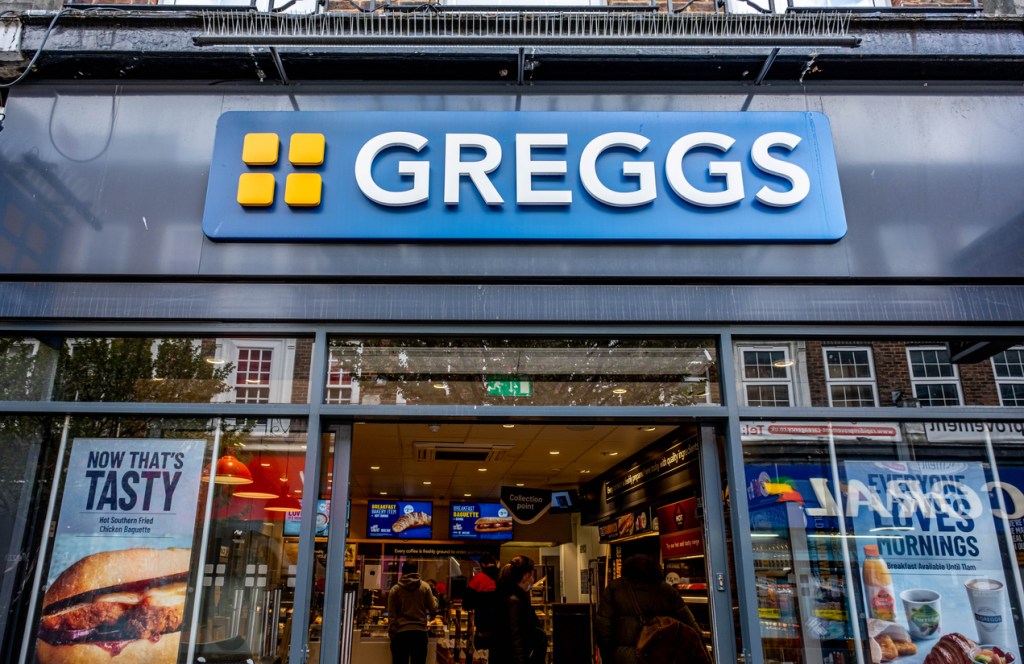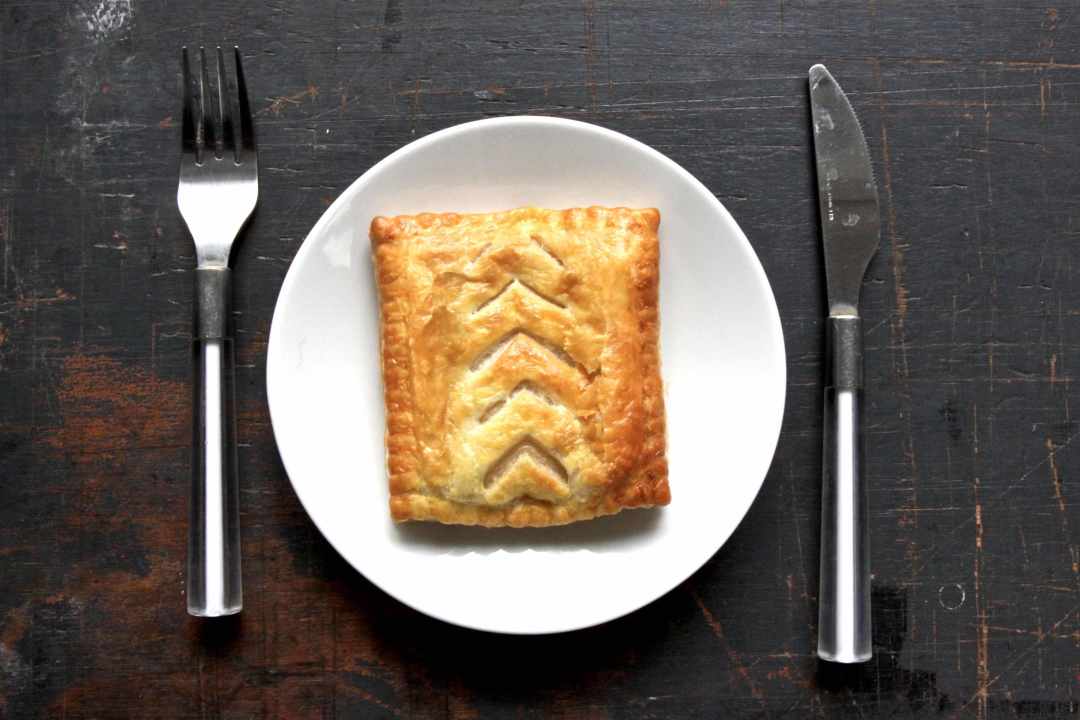My family has a dirty secret. I’m ashamed of admitting it in writing because I feel I may be permanently marking my card in life. And not just my card. There will now be an upper ceiling against which the heads of my children will bump.
The secret is this: we go to Greggs. I know, I know; there is a time and place for such a visit – you’re catching a train and starving, for instance, and nothing but a sausage roll will do. Those are the occasions when a grown man or woman might reasonably enter such a premises and stalk away, head bowed, clutching a steak bake so hot it could strip the boron off a boron rod from the core of a nuclear reactor. But, generally speaking, Greggs is not a place for a family dining experience.
Well, it is for us. On several occasions the Marsh family – two adults, plus two nippers – have had a perfectly decent lunch at Greggs. And the bill? It comes to about a tenner or 12 quid in all, for coffees (at £1.50 for an Americano more British Rail robusta than Bar Italia arabica) plus drinks for the kids, and a spread of savoury and sweet pastries that would leave Mrs Beeton feeling punch-drunk.
Through its sheer, demotic cheapness in pecuniary, culinary and aesthetic terms, Greggs has become the dining exemplar of broke Britain
But the Marshes aren’t alone in beating a path to the fragrant-smelling bright blue and yellow emporium. Looking around the packed outlet where we feasted on a recent Saturday, there was a family of four generations no less – great-grandmother, grandparents and a knackered-looking new mum and dad with the tiniest baby that had ever inhaled the salty aromas of a Greggs vegan sausage roll. And they were far from the only other family there: it was standing-room only.
But I’m not surprised. Greggs is the British ‘food-on-the-go’ (their expression) brand that best epitomises our times. In a sad reversal of the more aspirational years, back in the 2000s and the pre-pandemic 2010s, when the likes of Pret a Manger occupied this position; now Greggs is it. Through its sheer, demotic cheapness in pecuniary, culinary and aesthetic terms, Greggs has become the dining exemplar of broke Britain.
It is the fast-food choice of a country where living standards have been in the doldrums if not for several years (2022 was ‘a disaster’ for living standards, according to the Resolution Foundation) then for decades, since real incomes haven’t gone anywhere since under Labour in 2006. Throw in soaring energy prices and it’s no wonder Greggs is there; its ovens pumping out heat and its strip-lit premises a place where people of all walks of life congregate to keep warm, while eating food without cutlery or sipping soup from paper cups.
The numbers back this up. Greggs saw its revenues increase 23 per cent in 2022 to reach £1.51 billion. Whichever way you cut it that’s a lot of pasties, sausage rolls and steak and onion bakes. And the brand’s branch numbers are soaring, too. In 2010 Greggs had around 1,500 outlets in Britain; now it has more than 2,000 and says it’s on course to have 2,500 within two years. Isn’t it good to see that someone has a growth plan?

But in every other respect Greggs has become the perfect mirror of Sunak’s Brexit Britain – in part because of its peculiar nativistic Britishness. With its roots in Gosforth, after all, Greggs the baker, as it once was, is British to the core. If you took Starbucks and asked a person from the north of England to reinvent it, Greggs is what they would come up with (rather like Morrisons sometimes feels like a northern pastiche of Sainsbury’s). You know it from the moment you see it: Greggs says Sunderland, not Seattle; it smacks of Morpeth, not Manhattan. And rather than having that American approach where everything is inexpensive, Greggs unassailably cheap, which is a completely different thing altogether and has always played well in Britain. Just look at the success of Ryanair: the cheaper it gets, the more we hate it, but the more we love to hate it too.
So, it’s cheap and it’s unassailably British – and these things make it a powerful reflection of Britain and British values in the 2020s. In this way it’s become a modern equivalent of the Lyons Corner House, the chain which back in the 1930s, 1940s and beyond had hundreds of outlets across the country and similarly epitomised a mid-20th century Britain, one that was losing an empire but still searching for a role (as well as the buttered variety, of course).
Yet whereas the Lyons Corner House had crockery and waitresses in white pinafores, when you go to Greggs you’ll find greasy, crumb-strewn tables (the staff can’t keep pace with the customers) and people eating from paper bags. It is a cutlery-free zone. Where once our recent predecessors used knives and forks and ceramic tableware, in Greggs Britain we use our fingers and bite at our food like Neanderthals. In that respect, we’re culturally de-evolving, becoming less sophisticated – or perhaps we’ve been Americanised so much we don’t even notice it.
Either way, at £2 a slice we won’t go hungry. Which all means that, to an extent neither Wimpy or Happy Eater ever truly reached, this is one British dining brand that is starting to define our times.
So if Sunak and the Tories want to win in 2024 then they should head there for a photo opportunity or two at the earliest opportunity. After all, nothing says ‘Red Wall’ like Greggs. And for what it’s worth, I’m sure that whichever party wins the vote of Greggs man at the next election will win overall, because Greggs Britain is here.






Comments